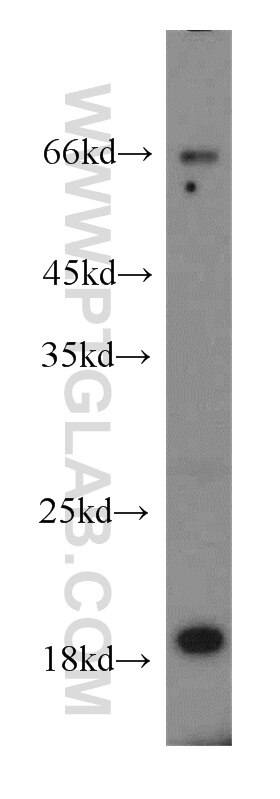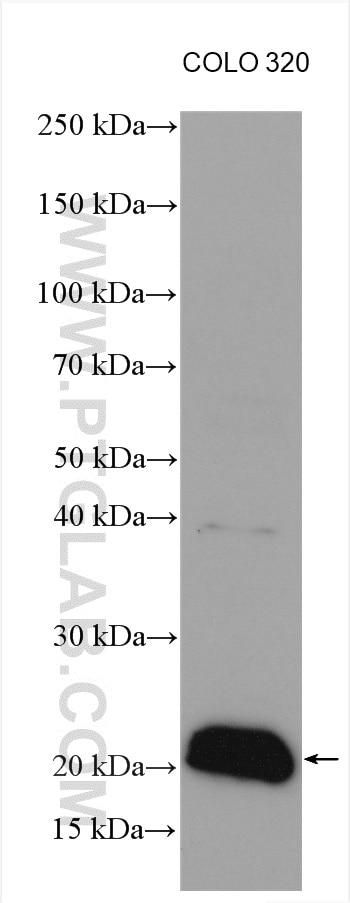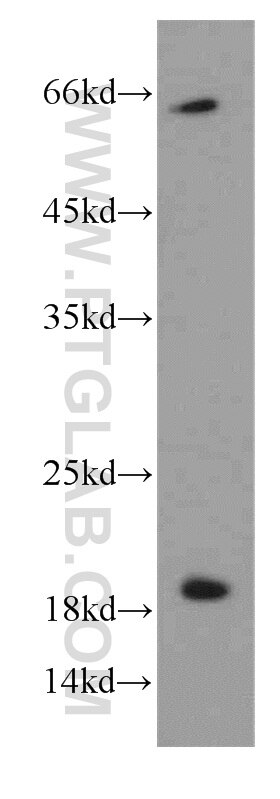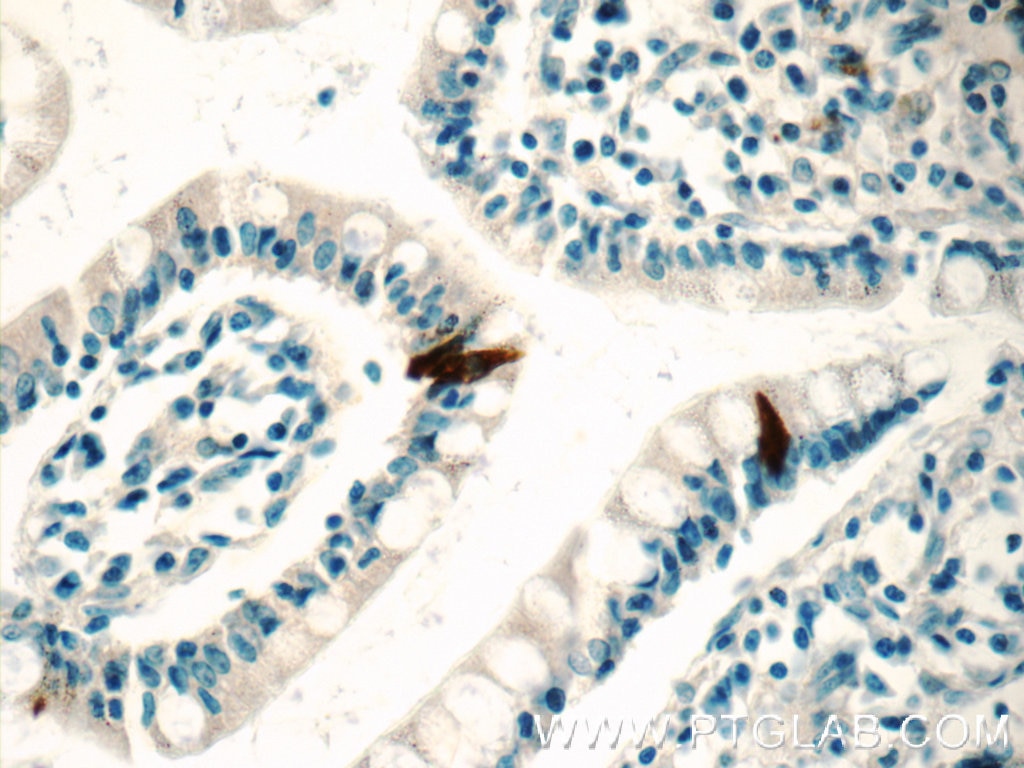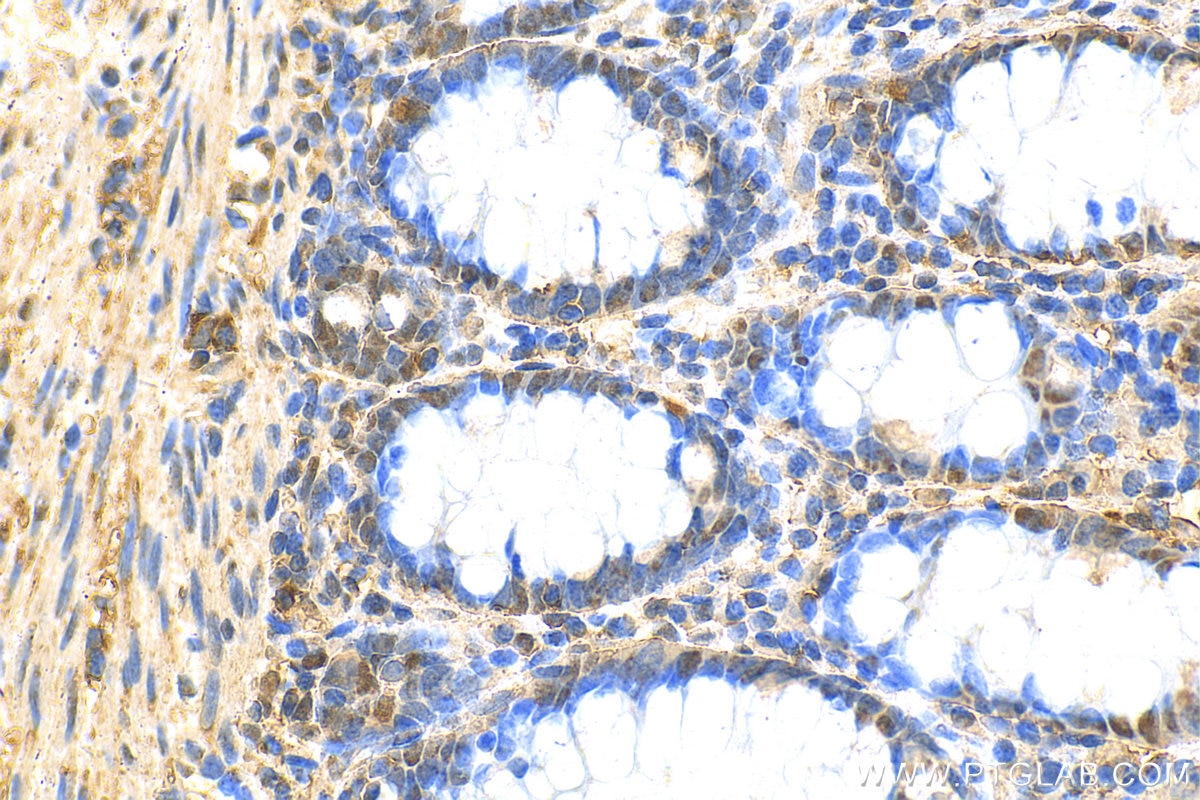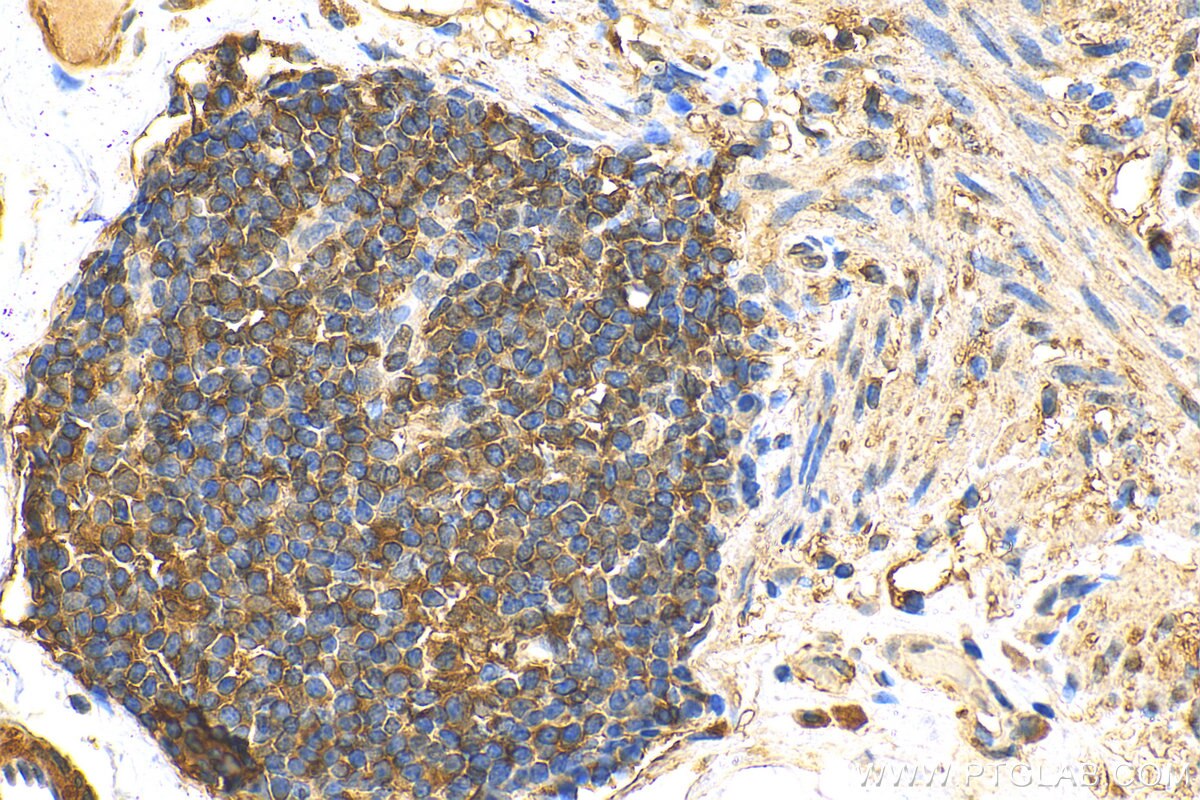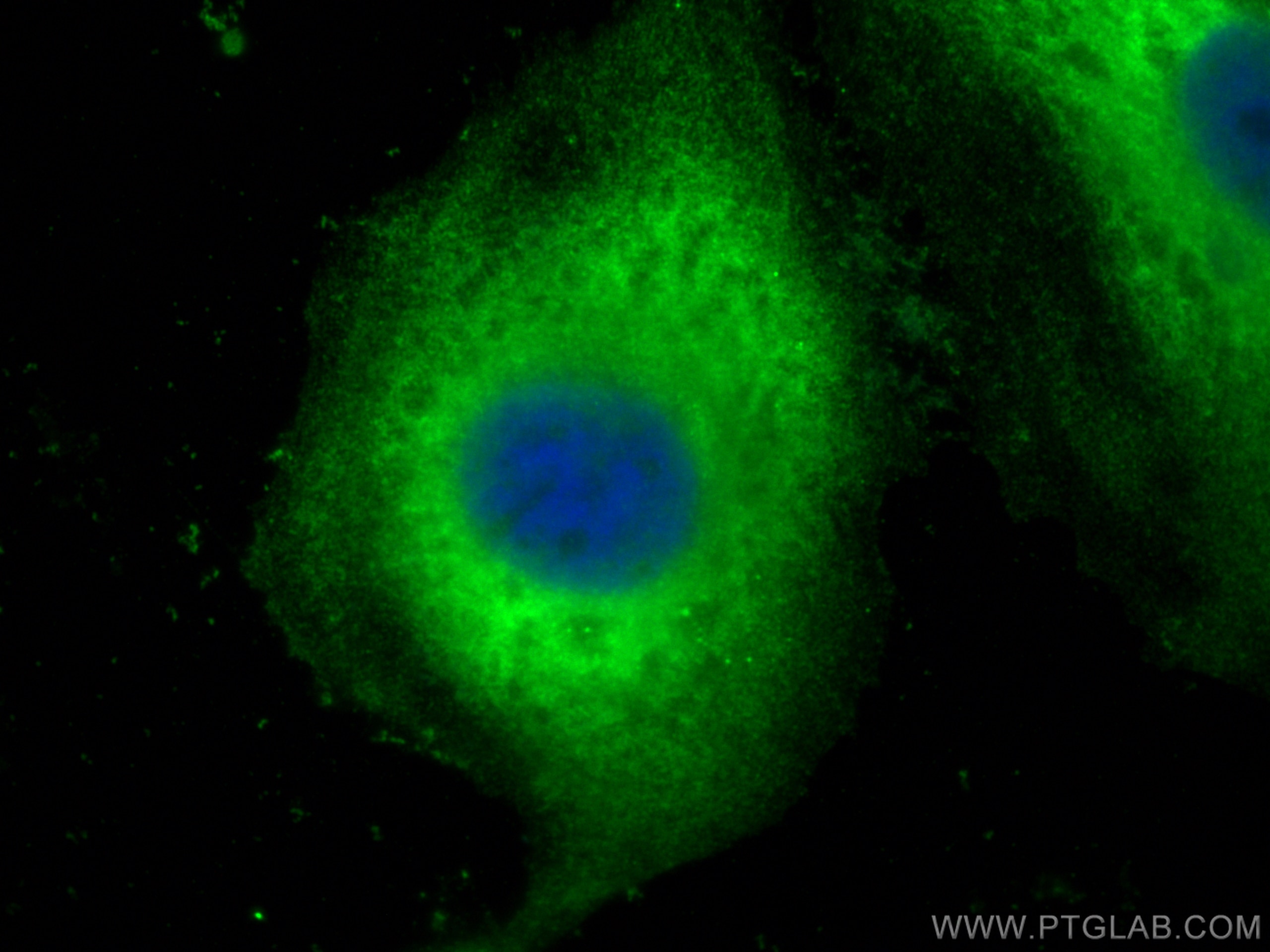ENSA Polyklonaler Antikörper
ENSA Polyklonal Antikörper für WB, IHC, IF/ICC, ELISA
Wirt / Isotyp
Kaninchen / IgG
Getestete Reaktivität
human, Maus
Anwendung
WB, IHC, IF/ICC, ELISA
Konjugation
Unkonjugiert
Kat-Nr. : 14518-1-AP
Synonyme
Geprüfte Anwendungen
| Erfolgreiche Detektion in WB | Maushirngewebe, COLO 320-Zellen, HeLa-Zellen |
| Erfolgreiche Detektion in IHC | humanes Dünndarmgewebe, humanes Kolongewebe Hinweis: Antigendemaskierung mit TE-Puffer pH 9,0 empfohlen. (*) Wahlweise kann die Antigendemaskierung auch mit Citratpuffer pH 6,0 erfolgen. |
| Erfolgreiche Detektion in IF/ICC | HeLa-Zellen |
Empfohlene Verdünnung
| Anwendung | Verdünnung |
|---|---|
| Western Blot (WB) | WB : 1:200-1:1000 |
| Immunhistochemie (IHC) | IHC : 1:50-1:200 |
| Immunfluoreszenz (IF)/ICC | IF/ICC : 1:200-1:800 |
| It is recommended that this reagent should be titrated in each testing system to obtain optimal results. | |
| Sample-dependent, check data in validation data gallery | |
Produktinformation
14518-1-AP bindet in WB, IHC, IF/ICC, ELISA ENSA und zeigt Reaktivität mit human, Maus
| Getestete Reaktivität | human, Maus |
| Wirt / Isotyp | Kaninchen / IgG |
| Klonalität | Polyklonal |
| Typ | Antikörper |
| Immunogen | ENSA fusion protein Ag5982 |
| Vollständiger Name | endosulfine alpha |
| Berechnetes Molekulargewicht | 14 kDa |
| Beobachtetes Molekulargewicht | 19 kDa |
| GenBank-Zugangsnummer | BC004461 |
| Gene symbol | ENSA |
| Gene ID (NCBI) | 2029 |
| Konjugation | Unkonjugiert |
| Form | Liquid |
| Reinigungsmethode | Antigen-Affinitätsreinigung |
| Lagerungspuffer | PBS with 0.02% sodium azide and 50% glycerol |
| Lagerungsbedingungen | Bei -20°C lagern. Nach dem Versand ein Jahr lang stabil Aliquotieren ist bei -20oC Lagerung nicht notwendig. 20ul Größen enthalten 0,1% BSA. |
Hintergrundinformationen
Endosulfine alpha (ENSA) belongs to the highly conserved c-AMP-regulated phosphoprotein (ARPP) family and was originally identified as an endogenous ligand for the sulfonylurea receptor, which regulates insulin secretion and glucose metabolism.ENSA not only regulates the cell cycle by interacting with microtubule-associated serine/threonine protein kinase-like (MASTL) enzymes, but also influences tumor growth through its own methylation. Recent studies have shown that ENSA is an important regulator of cholesterol biosynthesis in triple-negative breast cancer (TNBC) and that it triggers tumor growth by promoting cholesterol biosynthesis in TNBC.
Protokolle
| PRODUKTSPEZIFISCHE PROTOKOLLE | |
|---|---|
| WB protocol for ENSA antibody 14518-1-AP | Protokoll herunterladen |
| IHC protocol for ENSA antibody 14518-1-AP | Protokoll herunterladenl |
| IF protocol for ENSA antibody 14518-1-AP | Protokoll herunterladen |
| STANDARD-PROTOKOLLE | |
|---|---|
| Klicken Sie hier, um unsere Standardprotokolle anzuzeigen |
